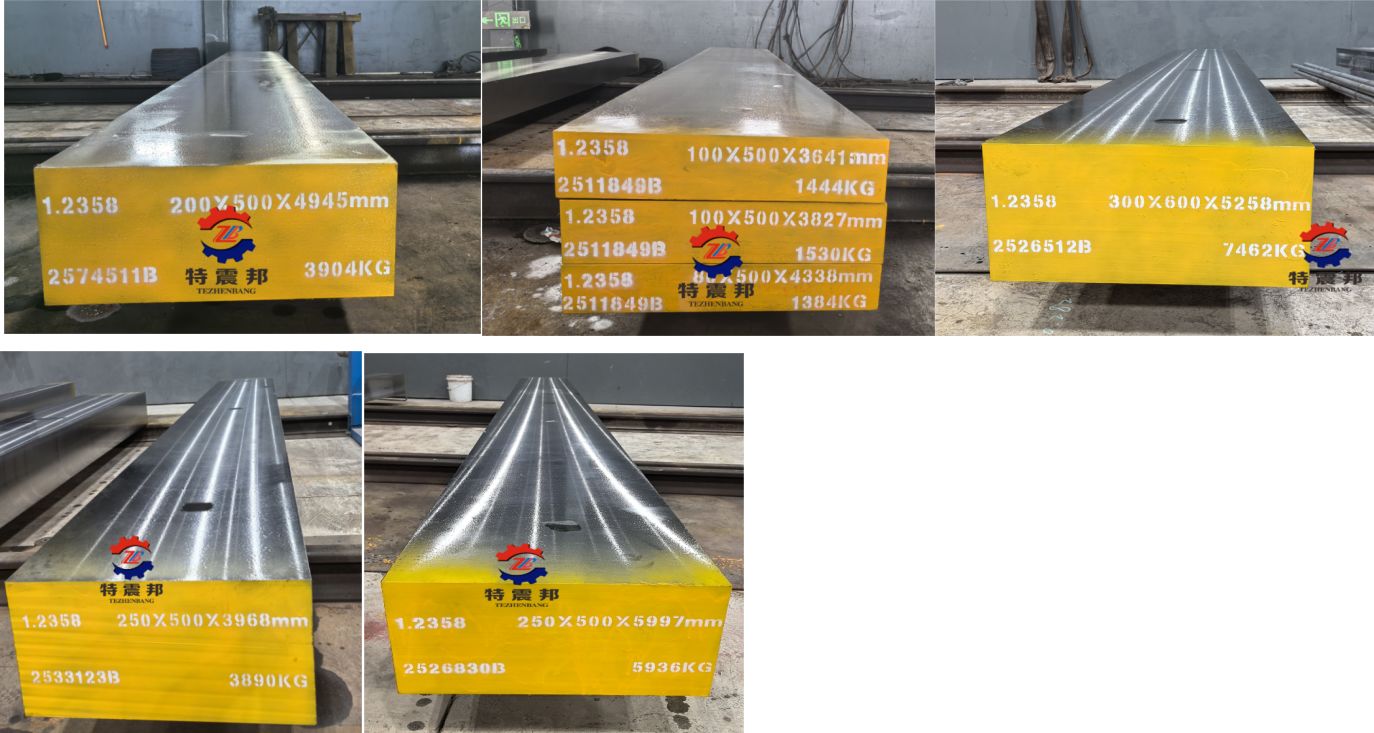1.2358
Classification:
The advantages of plastic mold manufacturing are mainly reflected in its excellent performance and processing characteristics. First of all, mold steel has high hardness and wear resistance, which enables the mold to maintain good surface quality during long-term use and is not prone to wear and deformation.
Tel:
Detailed Introduction
|
Steel Grade (GB) |
Comparison of Grades from Various Countries |
Technical Conditions |
Chemical Composition |
||||||||||||||
|
|
|
|
C |
Cr |
Mo |
V |
S |
P |
Si |
Mn |
Ni |
W |
Al |
Cu |
Nb |
Co |
B |
|
60CrMoV18-5 |
Germany (1.2358)
|
DIN EN ISO 4957-2001 |
0.58 ¦ 0.62 |
4.30 ¦ 4.70 |
0.40 ¦ 0.60 |
0.20 ¦ 0.30 |
≤0.010 |
≤0.030 |
0.20 ¦ 0.50 |
0.70 ¦ 0.90 |
≤0.25 |
|
|
|
|
|
|
Products
The advantages of plastic mold manufacturing are mainly reflected in its excellent performance and processing characteristics. First of all, mold steel has high hardness and wear resistance, which enables the mold to maintain good surface quality during long-term use and is not prone to wear and deformation. Even under high pressure and friction during the production process, plastic mold steel can still maintain stable working performance, thereby extending the service life of the mold.
Mold steel has good heat treatment performance. During the production process of the mold, its internal structure can be optimized through a reasonable heat treatment process, the hardness and strength of the mold steel can be improved, and the mold can still maintain good mechanical properties under high temperature working environment. In addition, the thermal stability of plastic mold steel enables it to withstand temperature changes during the injection molding process, and it is not easy to crack or deform, ensuring the quality of the product.
Finally, plastic mold manufacturing has excellent processability and can adapt to various complex mold processing requirements. Through precise cutting, grinding and other processes, plastic mold steel can be easily processed and formed to ensure the accuracy and appearance quality of the mold. This enables mold manufacturers to efficiently produce high-quality molds to meet the needs of different customers, improve production efficiency and reduce manufacturing costs.
1.2358 is a German standard alloy tool steel, with no corresponding material in the domestic market, and can be replaced by domestic steel 4Cr5MoSiV1 (H13).
1.2358 (60CrMoV18-5) is a cutting blade suitable for segment tools, stamping tools, scissors, plastic molds, and cutting tools. It can be used for trimming in multi-part molds such as staplers, scissors, and blades, and can also be used for cutting blades in gypsum molds and plastic injection molds.1.2358 is a German standard alloy tool steel, complying with the standard DIN EN ISO 4957-2001. From the perspective of chemical composition, there is no completely corresponding material for 1.2358 (60CrMoV18-5) in the domestic market. 1.2358 is a German heat-resistant mold steel, with no complete corresponding domestic steel grade, and can be replaced by domestic steel 4Cr5MoSiV1 (H13).
Product Display:

key word:
Hot working mold steel
Cold working mold steel
Plastic mold steel
Forging series
Message Consultation
Service hotline:
Company address
Telephone
Address: No.128 Zhangzhihe Avenue, Dapaishan Village, Xisaishan District, Huangshi City, Hubei Province

